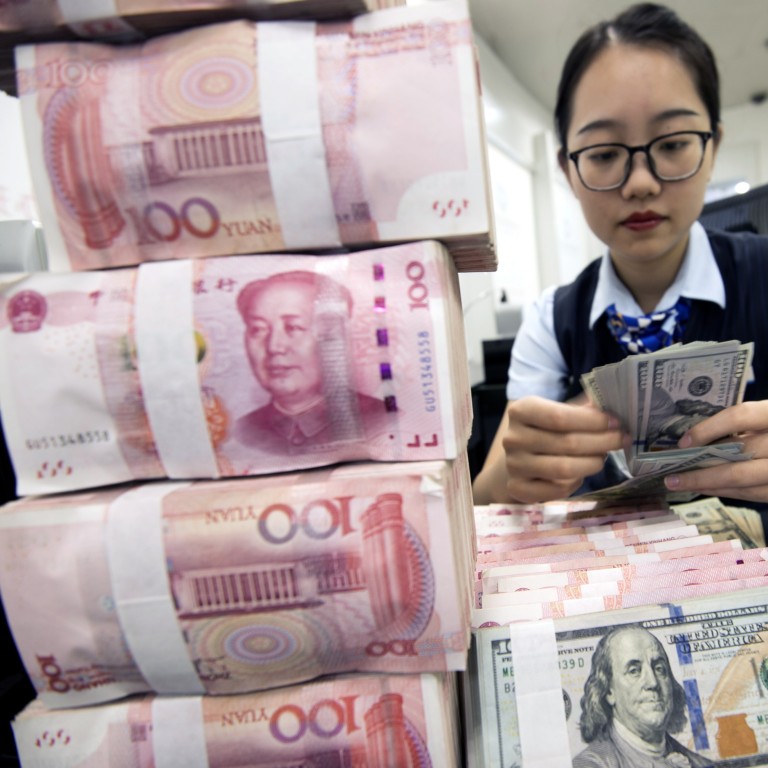
China’s capital flows recover in final month of 2022 as US eases pace of rate increases and US dollar makes ‘noticeable retreat’
- Investors increased holdings of Chinese debt by US$5.1 billion in December, the first month of net inflows since February 2022
- Overseas investors also injected US$11.4 billion into Chinese stocks and bonds in the final month of the year
China witnessed a recovery in capital flows in December last year as the yuan strengthened against the US dollar after the US Federal Reserve slowed interest rate increases and Beijing pivoted from zero-Covid.
They also added US$6.3 billion to Chinese equities in December. In total, foreign investors injected US$11.4 billion into Chinese stocks and bonds in the final month of the year, marking the second month in a row of inflows.
“Recent years have seen China attract steady flows, even as other emerging markets experienced lots of volatility,” the IIF said in its monthly capital flow tracker released on Wednesday.
“That changed this year. Non-resident investor flows to China have essentially ground to a halt, which is consistent with anecdotes we pick up from market participants who have become more attuned to geopolitical risk.”
While the expectation of a Fed pivot helped to improve the overall picture, there are still pockets of risk
The IIF estimated that emerging market securities attracted about US$1.7 billion of foreign funds in December 2022, closing the year on a weak note and highlighting the pending challenges for developing economies.
“While the expectation of a Fed pivot helped to improve the overall picture, there are still pockets of risk across the emerging market complex,” the IIF said.
Analysts are split over whether the US Federal Reserve will end or even reverse its rate increases this year, which will affect emerging market fund flows.
The Financial News, a newspaper founded by the People’s Bank of China, said it was unlikely that the US central bank would cut rates in the near term.
For 3 years zero-Covid haunted China’s economy. It’s gone, but the scars remain
“Based on the current situation, the weakening of the US economy will not change the Fed’s decision to raise interest rates. Before seeing a substantial decline in inflation, the Fed is expected to continue raising interest rates and adjust the pace of rate hikes based on data,” it said in a commentary published on Thursday.
“However, the suspension of interest rate hikes and even the resumption of interest rate cuts expected by the market may not come in a short time. Prudently adjusting the pace of interest rate hikes will remain the Fed’s primary attitude.”
The US dollar made a “noticeable retreat” in the final month of 2022 and the “rapid and surprising reopening of China’s economy” after Beijing abandoned its zero-Covid policy has driven up Asian currencies led by the yuan, analysts at UOB Group said in a note last week.
“However, the process of topping out in the US dollar may be volatile and is rather nuanced with various opposing drivers,” said UOB Group.
“[But] near term uncertainties remain, particularly in the first quarter of 2023 as to how well China will be able to cope with the jump in Covid-19 cases before the population is able to achieve a steady state herd immunity.”
Wang Tao, chief China economist at UBS, estimated that the yuan would appreciate against the US dollar moderately in 2023 as US rate increases peak, but the level of gains will be less than that of other currencies.
“Therefore, against the basket of exchange rates, the yuan may still depreciate slightly, which is also appropriate, because we feel that the yuan appreciated too much against a basket of currencies last year,” Wang said.
“If there is a slight depreciation this year, it will reduce the negative effect on exports, especially this year’s export situation is not good.”

